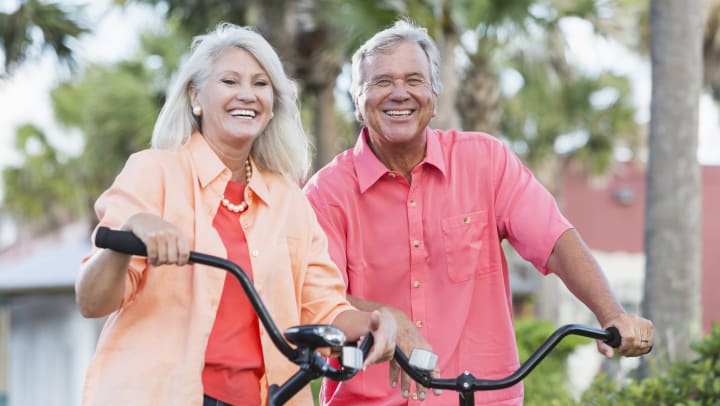It’s been hot! As extreme temperatures are upon us in many areas of the country this summer, it is important to be mindful of ways to keep safe and healthy when outdoors, particularly for seniors. According to the Centers for Disease Control and Prevention, rates of heat-related illness and injury such as heat stroke are more prevalent among older adults because their bodies are less efficient in regulating temperatures. Independent organization Climate Central reports that more than 9,000 American adults aged 60 and older die from heat-related illnesses each year. Therefore, it is vital to monitor the health risks among seniors and be prepared for venturing out in the extreme heat.
Six Summer Safety Strategies:
-
Drink for the Heat
Water is key. Dehydration can lead to life-threatening illnesses. According to the Cleveland Clinic, the body’s ability to sense thirst becomes less effective as we age. Therefore, it is important to track how much water you drink and to drink throughout the day. Using a water bottle can help you monitor the amount you are drinking. While it is generally recommended to drink from 2.2 - 3 liters of water a day, you should talk to your healthcare provider to confirm the right amount for you. Avoid beverages that may dehydrate you such as alcohol, coffee, tea, and cola.
-
Stay Out of the Heat
Make cool choices. Spend time indoors where there is air conditioning. If participating in outdoor activities, try to stay out of direct sun exposure, if possible. Venture out at sunrise or sunset when temperatures are lower.
-
Dress for the Heat
What you wear matters. According to the Centers for Disease Control and Prevention, light-colored, lightweight, and loose-fitting clothing are the top choice for hot weather. Light-colored clothing helps reflect sunlight and keeps cooler than dark-colored clothing. Clothing made from materials that allow free circulation so that heat escapes like cotton and linen are better choices. To feel much cooler, wear a light-colored, wide-brimmed hat that will minimize sun exposure.
-
Understand Medication Side Effects
Read labels. Some medications can increase sun sensitivity which can lead to reactions such as skin inflammation, rash, or eczema. It is important to check labels and consult with your healthcare provider to understand if there may be any potential adverse side effects from your medications before spending time outdoors.
-
Check the Weather Forecast
Before you get outdoors, check the weather forecast for temperature levels and heat indexes. Plan your outdoor activities during the hours when the temperatures are more comfortable, typically in the morning and evenings. Be on the lookout for Heat Advisories, so you can plan to avoid going outdoors during those times.
-
Keep List of Caregivers on Hand
Just in case of an emergency, it is important to have a readily available list of caregivers and contacts including their phone numbers. Furthermore, friends and family should check in on their loved ones so they can frequently monitor them for heat-related illnesses.
Summer is an exciting time and can be safe for seniors if proactive steps are taken to keep cool. Want to learn more about summer tips for seniors? Contact us today!


